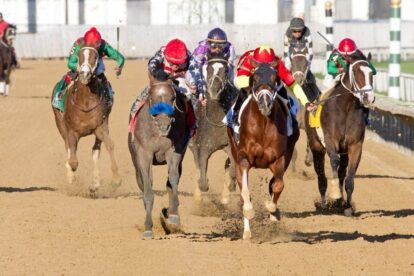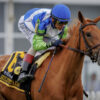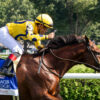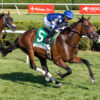Horse racing has been an integral part of American history since nearly the inception of the young country. Although it’s believed that the first official horse race was staged in England — ironically in 1776 — the United States weren’t far behind in bringing the sport over to its new borders.
And as one of the most storied states within the country, the history of horse racing in Illinois is as illustrious as any other territory in the nation.
Full Card Plays Available Now
There’s a reason we’re the #1 trusted source for premium racing picks & info.
History of Horse Racing in Illinois
Citizens of Chicago have enjoyed going to the track and watching the races since the 1830s. By the 1930s, Chicago had more tracks than any other city in America, boasting six different venues to hold the equestrian competitions.
This growth in the sport was no doubt influenced by Illinois’s decision as a state to legalize betting on horse races in 1927.
Fast forward to today, and there are numerous race tracks all over the state of Illinois, not just within the beautiful city of Chicago. And with more races to wager on, there are plenty more ways for bettors to put a stake into the races, as well.
Instead of having to spend the day at the track to cast bets and watch them play out, players can now choose to go to a track, place their bets online through any of the legal Illinois horse betting sites, or find a location for OTBs or off-track bets.
While horse racing continues to be a popular and profitable past time in Illinois, and across the nation, it’s no longer seen as a growing market.
With the rise of sports betting and online gaming, gamblers have found other ways to spend their money that they seemingly enjoy more than horse racing.
Early Success of Horse Racing in Illinois
In 1976, the state of Illinois was drawing over $75 million in revenue through horse race betting. By 1979, horse racing revenue would peak in the state at $79 million.
Horse race wagering continued to be a massive industry in Illinois and America, but within the state, revenue stopped growing after 1979 and started slowly shrinking.
By the 1990s, Illinois was bringing in between $40 and $50 million in revenue every year from horse racing bets.
Horse Racing in Illinois Faces Competition
The turn of the millennium marked a drastic drop for the industry and it never looked back. In 1999, Illinois brought in $42 million in horse racing revenue. In 2000, that figure dropped to just $13 million, representing the largest free fall in revenue year over year in nearly 4 decades.
The significant reduction in horse racing revenue in Illinois coincides nearly perfectly with the launch of riverboat casino gaming in the state, with the new market bringing in $8 million in 1992.
From there, riverboat casino revenue in Illinois grew exponentially, as horse racing continued to gross less and less over time. In the year 2000 when horse racing revenue dropped from $42 million to $13 million, riverboat casinos grossed over $300 million for the first time in the state and never looked back.
In 2019, a new gambling market came to Illinois in the form of sports betting. Since then, horse racing has remained steady at around $7 million in revenue per year.
Last year, in 2022, horse racing revenue in Illinois sat at $7 million while sports betting brought in $142 million. It’ll be interesting to see if the long-term growth of sports betting in Illinois will have any effect on horse racing, negative or positive.










